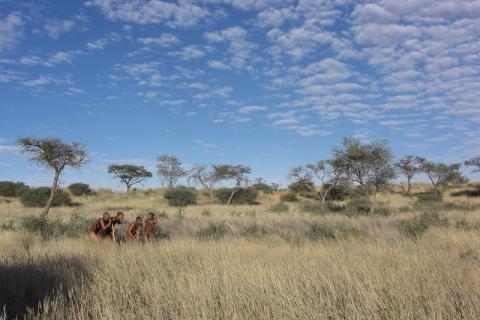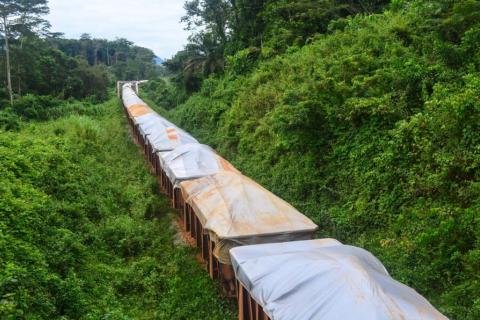Topics and Regions
Rick has over 40 years experience working in the land sector in Southern Africa. He is part of the Land Portal knowledge engagement team working to research and develop knowledge resources including data stories, blogs and in-depth country profiles for Southern, Central and Eastern Africa.
Rick is also a Senior Research Associate with Phuhlisani NPC - a South African land sector NGO and the curator of specialist Southern African land news and analysis website https://knowledgebase.land
He tweets on land related issues Twitter account https://twitter.com/KnowledgebaseL
He has a PhD from the University of Cape Town. His research in Langa, Cape Town features as the central case study in a recent book Urban Planning in the Global South (2018), co-authored with the late Vanessa Watson, which examines the on-going contestations over land and housing in the rapidly growing cities of the global South.
Details
Location
Contributions
Displaying 51 - 60 of 468Cyclone in Madagascar kills dozens, displaces tens of thousands
Cape Town: Forcibly removed 60 years ago Simon’s Town land claimants return
The forced eviction of Botswana's indigenous people
The unaccountability of Liberia’s polluting miners
"Beware of land grabbing: Central Africans are in danger of becoming foreigners in their own country"
Tanzanian Government Resorts to Cattle Seizures to Further Restrict Livelihoods of Maasai Pastoralists
Collaborative conservation: pastoralists as conservationists
Pastoralists and other livestock keepers are too often pitted against conservationists. Parks are sometimes created to keep livestock and people out, and there are frequent stories in the media about pastoralists invading conservation areas during drought, sometimes resulting in conflict and violence. Pastoralism is of course not compatible with a style of conservation that encloses and excludes, but extensive livestock-keeping can be central to more people-centred conservation approaches.
Rewilding and ecosystem restoration: what is natural?
Debates about the role of livestock in wider landscapes have come into sharp focus around the idea of ‘rewilding’, linked to plans for ‘ecosystem restoration’. Rewilding Britain defines rewilding as “the large-scale restoration of ecosystems to the point where nature is allowed to take care of itself. Rewilding seeks to reinstate natural processes and, where appropriate, missing speciesi .” The big question, though, is: what is ‘natural’ and what is defined as ‘missing’, over what timescale?
Going up in smoke: how livestock keeping can reduce wildfires
In recent years there have been devastating wildfires across the world. Wildfire incidence is increasing with climate change, and wildfires are predicted to increase by 50% by the end of the centuryi . Such intense, uncontrolled wildfires are massively damaging to environments and to people, involving multiple deaths – including among firefighters - and widespread destruction of property.
Enhancing biodiversity through livestock keeping
Extensive livestock use can enhance biodiversity and support species conservation in multiple ways. Mobile pastoral systems can create bio-corridors through transhumance routes and disperse seeds, enhancing biodiversity across landscapes, for example. Mobile livestock also create fertile hotspots across rangelands, and livestock grazing is essential in reducing fire loads in vulnerable ecosystems.





